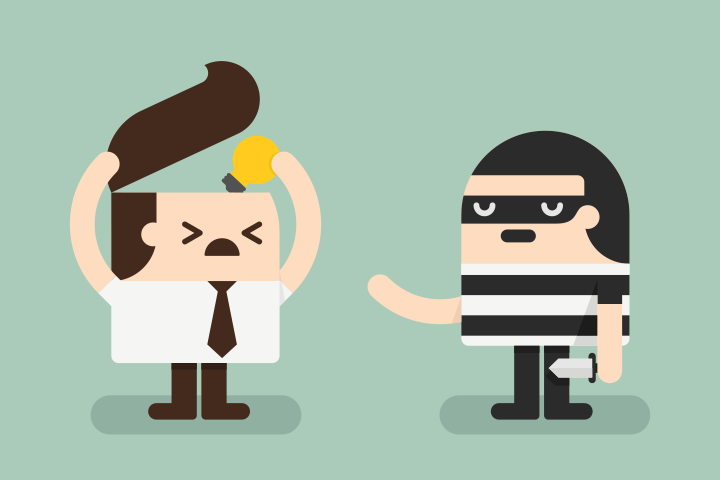
Intellectual Property 101: the do’s, dont’s and important updates
12 January 2022
Disputes over intellectual rights often get in the spotlight, but the topic can be tricky both to research and to regulate. You might have heard of songwriters arguing over the similarity between records, or inventors over who was the first to come up with an idea – but what exactly is intellectual property and how do you protect it? What rights do you have, what are the most common mistakes and how can you avoid them? Matthew Pryke, Managing Partner and expert in intellectual property law at law firm and SCC member Hamlins LLP, gives us his most important insights.
What is “intellectual property rights”?
Intellectual property rights are important businesses assets, often misunderstood. They are relevant to any business or individual who has a brand or confidential information to protect. For example, copyright is protection for authors and musicians for their work, trademarks protect brands and logos, and design rights protect the work of designers.
Why is it important to understand intellectual property rights?
Intellectual property rights can appear complex but it is not necessary to understand everything about them (that is what lawyers are for). What is important to understand is that intellectual property rights are a crucial asset and will both protect and add value to your business. Effectively managed intellectual property rights can increase the value of your business when seeking investment or when the time comes to sell.
What are the most common misconceptions when it comes to intellectual property rights?
One common misconception is that you would have to spend lots of money to protect your rights and that all rights must be registered to be protected. Many rights have automatic protection, for example, copyright protection automatically applies to all authors’ works provided they fall within a protected category and the author is a qualifying person.
Another common misconception is that intellectual property rights are only relevant to certain businesses. Actually, intellectual property rights are relevant to all types of business because, if nothing else, almost every business has a brand which identifies the business and adds value if sensibly protected.
What are the most common mistakes regarding intellectual property rights?
The biggest mistake people make is they do not take the steps early enough to identify their key intellectual property assets.
The second biggest mistake is people do not ensure intellectual property protection is secured soon enough. This means they can lose out on long term value and spend more in the medium term to protect these assets against predatory third parties.
How should one go about protecting intellectual property?
There are certain things you can do yourself, such as making use of copyright and confidentiality notices and using appropriate non-disclosure agreements (NDAs) to keep confidential information secure. But as a lawyer, I would inevitably suggest contacting an IP specialist who can undertake a sensible audit of your business and identify the appropriate and focused measures to take to reflect your business and any budgetary constraints.
What effects can we expect from Brexit regarding intellectual property rights?
The most important consideration is that the transition period has ended. The ‘transition period’ refers to the year after the UK left the EU, which ended on 31 December 2020. This means newly registered EU intellectual property rights do not provide protection within UK. From the 1 January 2021, previously registered EU intellectual property rights were issued a comparable UK version. Therefore, if you had, for example, a registered EU trademark prior to Brexit, you will now have a comparable mark which is valid within the UK and a valid EUTM for the remaining 27 EU states and there is no need to take any action. If, however, you have not yet secured all of your intellectual property protection in the EU then you will now need to separately apply for UK protection and EU protection.
Are there any other upcoming changes in the policy?
The UK government is currently considering a change to the UK’s intellectual property exhaustion regime. The ‘exhaustion’ of IP rights refers to when a business sells a good, for example a car, to a third party. In this instance, the business no longer has continuing IP rights to the car, they are “exhausted”. This means the third party can undertake a number of steps in connection with the car, including altering and selling it for profit. The results of the governmental consultation will have an impact on both the UK and countries in the European Economic Area (EEA) with regards to parallel trade. Since this is very much a changing landscape at the moment, it is important to keep an eye out for any changes. You can do this easily and at no cost by registering with an IP Law firm to receive appropriate updates.
Do you have any example showing the importance of intellectual property
protection?
A good example of this is when Innocent Smoothies was very publicly selling to Coca-Cola. Innocent almost lost a once in a lifetime deal because there was a dispute over whether they owned their iconic logo. It turned out the paperwork to transfer copyright to Innocent had never been signed, despite the logo design being paid for many years previously. This is a great lesson for all businesses which contract work out to third parties to ensure they have signed agreements to secure the intellectual property rights in any designs or works undertaken by third parties. This also serves as a reminder to all businesses to check whether they own the rights to their logos, websites, domain names, and so on. For those who are just starting out, make sure you protect your rights from the beginning as it can prove more expensive and difficult to address these issues later on.
Join our mailing list
and keep up-to-date with the Chamber's news and events.
Read our Privacy Policy here